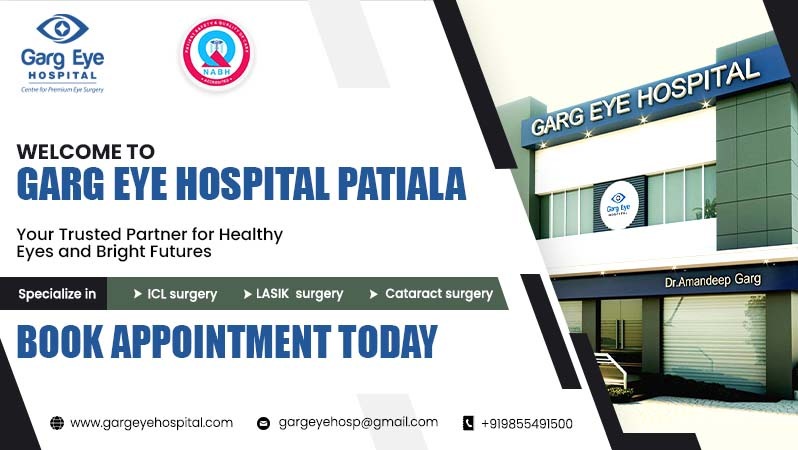- Open Hours: Mon-Sat 9:15 am - 6:30 pm
- +91 9855491500
- gargeyehosp@gmail.com
Top 10 Requirements for a good LASIK Candidate
Top 10 requirements for a good LASIK Candidate- If you have any of these eye diseases- myopia (near-sightedness), hyperopia (farsightedness), or astigmatism and are considering a Lasik surgery, there are certain obligations you need to match to be a good LASIK candidate. As useful as a LASIK surgery can be in rewarding you with a clear and better vision, you should avoid it if you do not match the required criteria to get a LASIK surgery.
Table of Contents
ToggleTop 10 LASIK Eligibility Criteria List
AGE FACTOR
The patient should be 18 years or older, although, it is advised by most ophthalmologists to wait until you are past your mid-20s since the effect of Lasik surgery might not last in your mid-20s, the patient however achieves stable eye vision around the age of 25. Getting a LASIK surgery is far more effective at the age of 25 or older, as in your teen 20s, your prescription is still changing and a LASIK surgery might fail to catch the real problem because of the fluctuation of the disease in younger age, which later causes you to wear eyeglasses, contact lens or get a LASIK surgery again.
STABLE VISION PRESCRIPTION
It is very facilitative to have a stagnant vision prescription for at least one or two years which results in a successful surgery, as it does not harmfully affect or change the patient’s eye condition after getting the surgery. Surgeons usually consider any diopter change less than +/-0.50 suitable to proceed with LASIK.
GOOD OVERALL HEALTH
A person suffering from a disease or a condition that affects their immune system or recovery potential should avoid this surgery. Diseases like rheumatoid arthritis, HIV, Lupus, and autoimmune disorders make your immune system weak, and getting surgery done under these conditions might increase your risk of catching infections. Also, people experiencing uncontrolled diabetes, or any other systematic diseases should not consider getting a LASIK done. It is important to have good overall health because even if a LASIK fixes your impaired vision, it is a surgery after all and nobody can predict any negative outcomes.
YOU DO NOT HAVE DRY EYE
A dry eye is a condition in which the eyes are not able to produce enough tears because of difficulty in tear creation or increased tear evaporation. Getting a LASIK surgery done under these circumstances might result in impaired vision. Therefore, it is best counseled to avoid LASIK if you have dry eyes.
YOUR EYES ARE GENERALLY HEALTHY
When a person is free from eye infections or a chronic eye disease, it is considered healthy to move forward with LASIK surgery. Having healthy eyes before getting a LASIK surgery done makes you less prone to vision regression.
LENS PRESCRIPTION WITHIN A CERTAIN RANGE
The FDA has set certain criteria for the approval of LASIK surgery. A person should have approximately +6.00 diopters of hyperopia (farsightedness), -12 diopters of myopia (near-sightedness), and 6.00 diopters of astigmatism to be a suitable candidate for LASIK surgery. In some cases, the prescription falls under a high degree of problem which is not curable through a LASIK surgery.
YOU ARE NOT PREGNANT
Sometimes hormone alteration due to pregnancy is mistaken for actually having poor vision. In most cases, women get back stable vision after the baby is born since the vision instability might be occurring due to hormonal changes during pregnancy. If women have poor vision months after giving birth, doctors recommend a LASIK surgery.
YOUR CORNEAS ARE THICK ENOUGH
During LASIK surgery, your corneas are reshaped, and a laser is used to slice a thin flap of the corneal tissue. This can be safely done only if your corneas are thick enough. If the thickness of your cornea is less than 540 µm, the doctor would prefer not to proceed with the surgery. Therefore, the thickness of the corneas is examined before performing the surgery to ensure the reshaped corneas remain functional.
YOUR PUPILS SHOULD NOT BE TOO LARGE
Your surgeon will assess you to confirm your pupils are too large to perform LASIK surgery as performing LASIK on very large pupils can cause blurry night vision after surgery.
REALISTIC EXPECTATIONS
Being aware of the pros and cons of the surgery is a big contribution in determining if a person is a good candidate for LASIK surgery. The patient should thoroughly consult with their doctor and gather information about the side effects and risks of the surgery beforehand to avoid any confusion during or after the surgery.
Conclusion
Patients having severe dry eyes, conjunctivitis, eye injury, keratoconus, corneal dystrophy, herpes-related eye infections, cataracts, previous eye surgeries, and pregnant women are prohibited from getting LASIK surgery. LASIK surgery is very useful in correcting myopia, hyperopia, and astigmatism can avail of the surgery but under certain measures which also proves you to be a good LASIK candidate.


